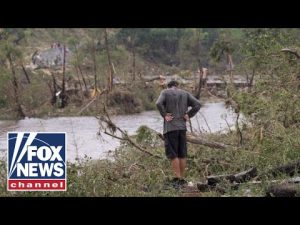In a shocking turn of events, a disturbing attack unfolded in Boulder, Colorado, where a man allegedly targeted a group of Jewish individuals. This attack raises major concerns about safety, especially for vulnerable communities. Witnesses reported that the assailant was brandishing Molotov cocktails and a homemade flamethrower, making for a terrifying scene reminiscent of something out of a dystopian film. What’s more alarming is that among the victims was an 88-year-old Holocaust survivor, a woman who had already faced unimaginable horrors in her youth, only to find herself under mortal threat again in America.
The suspect, identified as Mohammed Soleiman, was an illegal immigrant who entered the United States during the Biden administration. This event has led to intense scrutiny of current immigration policies, especially those that many believe could allow potential threats to enter the country unchecked. Critics argue that this incident underscores the dangers of a porous border and the consequences of failing to vet individuals who come into the nation. It raises the question: how can the American people ensure their safety when laws appear to be bent or ignored?
This attack, deeply tied to the undercurrents of rising antisemitism, occurred against the backdrop of an increasing wave of anti-Jewish sentiment in the United States. Soleiman was allegedly shouting slogans like “Free Palestine” while he attempted to harm those gathered for a peaceful rally aimed at supporting hostages held in Gaza. This juxtaposition of peaceful protest and violent response is striking. It seems that the modern political landscape can sometimes provoke actions that are anything but peaceful.
While many mainstream media outlets have been cautious in labeling the incident as terrorism, the surrounding facts suggest otherwise. It’s troubling to see officials downplaying the motives behind such violent actions—especially when they seem to be fueled by a clear anti-Jewish hatred. Additionally, the reluctance to call this what it plainly appears to be, a hate crime, raises more questions about accountability and the narrative being crafted around these events.
As the dust settles from this horrific event, the call for a stronger stance against antisemitism and violence has grown louder. While political leaders and public figures express their condolences and concern over rising violence, there seems to be a disconnect when it comes to taking tangible steps to prevent such atrocities in the future. The tragedy in Boulder becomes a cautionary tale, warning all Americans of the fragility of peace and the obligations to confront hatred wherever it may arise, especially in our own backyard. It remains essential for communities to gather, stand united, and ensure that history does not repeat itself.







